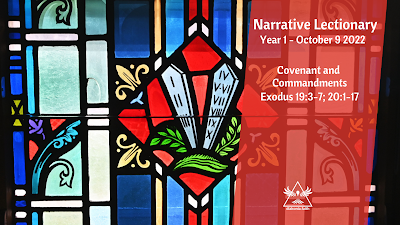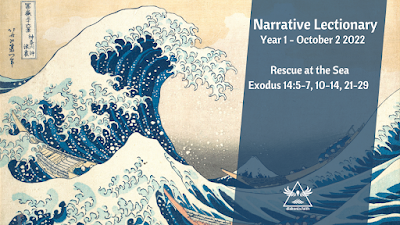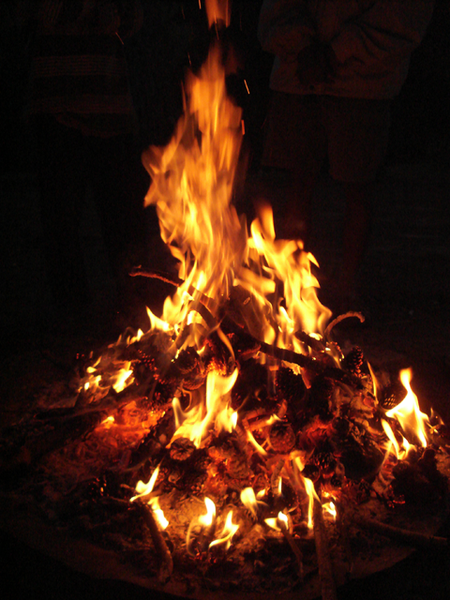Exodus 19:3-7; 20:1-17
19:3Then Moses went up to God; the Becoming One called to him from the mountain: “This you shall share with all the descendants of Jacob, the entire nation of Israelites: 4'You have seen what I did to the Egyptians and how I carried you on eagles' wings to safety, to myself. 5Dear ones, if you listen to what I am saying and keep our covenant, you will be dearly treasured, my most prized keepsake, out of all the peoples. Yes, the entire earth is mine, 6but you shall be for me a people made of priests and a sacred nation.' These are the words that you shall speak to the Israelites."
7So Moses went to the elders of the people, summoned them, and set before them all the words that the Becoming One had told him to share.
[…]
20:1Then God spoke all these words,
2I am the Becoming One, your God, who brought you to safety out of the land of Egypt, who freed you from the house of slavery; 3you shall have no other gods before me.
4You shall not make an idol for yourself, whether it is in the shape or form of anything that is in heaven above or that is on the earth below or that is in the water under the earth. 5You shall not bow down to the idols or serve them, for I am the Becoming One, your God, and am a jealous God, who will revisit the inequities of those who hate me to their children up to the third and the fourth generation, 6but I will show steadfast, enduring love to the thousandth generation of those who love me and who keep my commandments.
7"You shall not use the name of the Becoming One, your God, in wrong or harmful ways, for the Becoming One will not let anyone go free who misuses my name.
8"Remember the Sabbath day, the day of rest, and keep it holy. 9Six days you have to labor and do all your work, 10but the seventh day is a day of rest to the Becoming One, your God. You shall not do any work nor ask or require anyone else to do work, whether it is your children, the people you enslaved or the people who work for you, your animals, or even the migrant workers in your towns. 11For in six days the Becoming One made heaven and earth, the sea, and all that fills them, but rested on the seventh day; therefore, the Becoming One blessed the Sabbath day and set it apart as a holy day of rest.
12"Give honor to your parents so that you may live many days in peace in the land that the Becoming One is giving to you.
13"Do not kill.
14"Do not violate intimate relationships.
15"Do not steal.
16"Do not lie about or mischaracterize one another.
17"Do not long for your neighbors' house, spouse, the people they enslaved or those who work for them, animals, or anything else that belongs to your neighbor."
Queeries for the text:
What is this building on?
What is missing?
What is the companion text?
Where is this headed?
Who do these commandments protect? What communities are left out of the commandments' protection?
How were the ten commandments originally understood?
How do we tell the truth?
What counts as murder?
What are your queeries?














